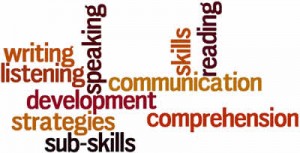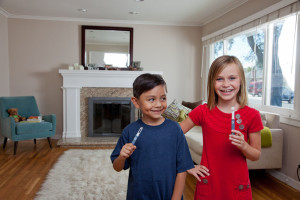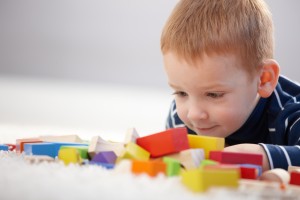How do you know if your child has a speech impediment? Speech impediments in children are more common than you might think. They are a type of communication disorder where “normal” speech is disrupted. The disruption can include a lisp, stuttering, stammering, mis-articulation of certain sounds and more. Another commonly used phrase for speech impediments in children is speech disorder. Often, the causes of a speech impediment are unknown. However, sometimes there are physical impairments such as cleft palate or neurological disorders such as traumatic brain injury that may be the cause of the speech impairment. We have listed below five of the most common types of speech impediments in children and a general description of each. Of course, if you suspect your child may have a speech impairment of any kind, we encourage you to visit your pediatrician or hire a Speech Therapist for more information.
Three Valentine’s Day Activities For Your Kids
Articulation Disorders Arts and Crafts At Home Ideas Language Development Parents' Corner School Speech Disorders Speech Therapy TechniquesIn the spirit of Valentine’s Day, we want to share with you three fun ideas to celebrate Valentine’s Day with your students and kids! Of course, you can pull out some arts and crafts, stickers and colored paper to make homemade cards, but we’ve gone a bit further with some crafty and creative ways to get your involved with your kids, and provide an opportunity for language building and speech therapy techniques. We gathered these activities from some of our favorite Speech Therapy websites, so, grab your scissors, paper and tape and get ready for some Valentine’s Day fun!
Speech Therapy Exercises For Children
At Home Ideas Language Development News Parents' Corner Speech Therapist Speech Therapy TechniquesThis week, in the spirit of the Olympics, we thought we’d offer some of our favorite speech therapy exercises and activities to do at home. That’s right, exercises! While there will not be a half-pipe, blob-sledding track or a gold medal at the end of your session, the reward will be an opportunity to spend quality time with your child and help him or her with increasing speech and language skills.
What Are Communication Disorders?
Articulation Disorders Language Development News Parents' Corner Speech Disorders

What Are Communication Disorders? Are They The Same As Speech Disorders? Image Courtesy of developingcourses.com
Last week, we helped you identify the symptoms associated with five common types of speech disorder. There are a handful of disorders that are not considered speech disorders, yet still effect a child’s ability to speak and communicate. Today we discuss a few of these conditions. These are classified under “communication disorders” rather than speech disorders because often the causes are unknown and they effect more than just a child’s speaking ability.
A communication disorder is a speech and language disorder which refers to problems in communication and in related areas such as oral motor function. These delays and disorders can range from simple sound substitution to the inability to understand or use native language. In general, communications disorders refer to problems in speech (comprehension and/or expression) that significantly interfere with an individual’s achievement and/or quality of life.
Speech Delay or Speech Disorder?
Articulation Disorders Language Development Parents' Corner School Speech delay Speech DisordersSo you think your child’s speech and language development may be coming in a little slow? Those cute babbles have yet to turn into clear words, as she is about to enter pre-school. But, how do you know it’s a speech disorder, rather than a simple speech delay? And, if indeed it is a speech disorder, what does that mean? Will my child be able to communicate effectively, will she be able to read, participate in class and most importantly, gain self-confidence? These are just some of the questions parents face as their child begins to learn speech patterns and language skills as a toddler.
Ta-da! Music Is A Terrific Tool for Speech Therapy!
Articulation Disorders At Home Ideas Games and Activities Language Development Parents' Corner School Speech Disorders Speech Therapist Speech Therapy Techniques
We finalize our in-depth look at tools for speech therapy with Music. Yes…music can truly be an effective tool for speech therapy! Think about it, rhymes, patterns, sounds and movement all help bring about speech language comprehension and articulation. According to “Use of Music in Speech-Language Therapy,” an article by Mary B. Zoller, “Using music is a multi-sensory experience that enhances a number of other skills that impact on speech and language development.” The use of music as a speech therapy tool serves to energize and engage a child, and encourages the child to actively participate. And the good news? You do not need to be a musician or a great singer to reap the benefits of music as therapy! Even using a silly voice and acting out the lyrics is helpful in engaging your child and a way to get them to listen attentively and unknowingly engage them in speech therapy exercises. As we have mentioned throughout this series, this does not serve to replace a proper evaluation or treatment from an SLP, rather music as a tool for speech therapy that you can do at home or in conjunction with your current speech therapy regime. Continue reading
Free Speech Therapy Tools: Worksheets and Printables
At Home Ideas Language Development Parents' Corner Speech TherapistOur in-depth look at tools for speech therapy continues with a look at free speech therapy tools that you can use at home. Worksheets and Printable Handouts. We have searched the Internet for worksheets that you can use with your child to use as support material in your speech therapy efforts. There are many different worksheets and handouts to choose from, so we have narrowed it down for you and organized these activities into two categories: activities to help build speech and language skills and activities to help build literacy. And, as we continue to emphasize, these are not a substitute for proper evaluation and treatment from an SLP. These handouts are purely to provide your child with hands-on resources for improving articulation, language building and increased literacy at home and to help build a foundation for correct speech patterns and comprehension.
Books Are Excellent Speech Therapy Tools!
Articulation Disorders At Home Ideas Language Development Parents' Corner School Speech Disorders Speech Therapist Speech Therapy Techniques
Yes, Books are excellent speech therapy tools and effective way to improve articulation disorder. As we continue our in-depth look at tools for speech therapy, we take a look at books. Reading to your child is one of the most important things you can do as a parent or caregiver whether or not you child has a speech disorder. As we have mentioned before, reading to your child helps make connections with what he or she is hearing and functions as a building block to language development. Reading comprehension is an essential tool for a child’s future academic achievement and social well-being. Not only does reading books serve as an effective form of speech therapy, it’s an excellent way to engage and entertain your child. The books listed below are not intended to replace speech therapy with an SLP. Rather, these are books that you can read at home with your child, to encourage sound production and set them up for correct articulation patterns.
Are Tactile Tools for Speech Therapy An Effective Option?
Apps Articulation Disorders At Home Ideas Parents' Corner School Speech Disorders Speech Therapist Speech Therapy Techniques
Our in-depth look at tools for speech therapy turns toward non-traditional speech therapy methods today. We have touched on terrific apps for families and children with articulation disorder and sites and resources for SLP’s looking to incorporate technology into their practice. Another piece of speech therapy worth discussing are hand-held, tactile tools. Hand-held items are often effective tools for speech therapy. Tactile tools target a range of skill sets from fine and gross motor, articulation, voice and stuttering, listening and sensory skills. Tactile tools allow kids to practice speech sounds, provide appropriate sensory options and can be used in any setting, whether it be home, at a speech therapist’s office or even at school.
Apps for SLPs
Apps Articulation Disorders Language Development Parents' Corner Speech Disorders Speech Therapist Speech Therapy Techniques More and more, speech and language therapists are turning to the Internet to provide high-quality speech therapy exercises for their therapy sessions. As children (and their parents) become more proficient in technology and in particular tablets and mobile devices, therapists are presenting innovative ways to keep their therapy services current with today’s technology standards.
More and more, speech and language therapists are turning to the Internet to provide high-quality speech therapy exercises for their therapy sessions. As children (and their parents) become more proficient in technology and in particular tablets and mobile devices, therapists are presenting innovative ways to keep their therapy services current with today’s technology standards.







